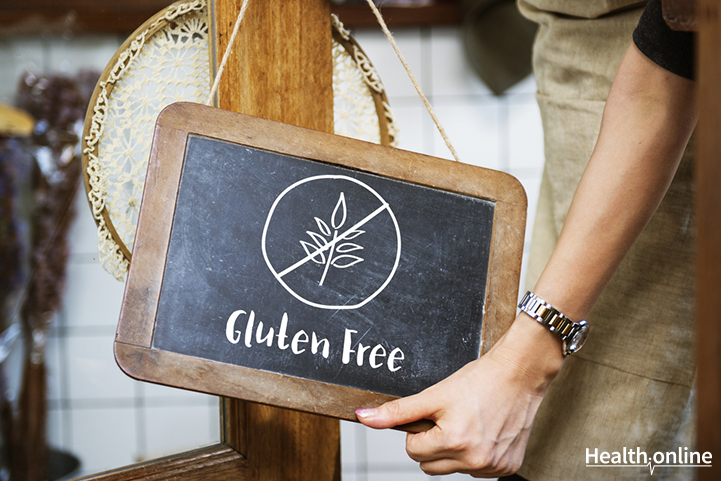
Will Going Gluten-Free Make You Healthier?
If you are familiar with the latest trends in health and dieting, you must be hearing the term ‘gluten-free’ very often. Gluten-free diets are becoming popular everywhere.
What is gluten?
Gluten is a protein found in wheat. It causes hypersensitivity reactions in people with gluten hypersensitivity disease and celiac disease. Research shows that a good number of people who do not suffer from gluten hypersensitivity still contain the genes that might lead to these diseases. To summarize, gluten is a protein capable of inciting an immune response.
Why is gluten-free diet gaining popularity?
Gluten-free diets are known to ward off hypersensitivity related to gluten and related proteins. These diets are also known to harbor a host of benefits like:
- Regulating cholesterol metabolism
- Promoting digestion
- Increasing energy levels
- Promoting cardiovascular health
- Reducing diabetes mellitus
Recommended Read: 7 Foods You Would Never Guess Are Packed With Gluten
What happens when you eat gluten-rich foods?
Normally, if you are not allergic to gluten, it has no effect. But for people with hypersensitivity, the foods lead to a type of inflammation reaction in the intestines, leading to gastrointestinal problems.
What to eat and what to avoid on a gluten-free diet?
Here is a list of foods to eat when you plan to go gluten-free
- Beans
- Seeds
- Nuts, in the unprocessed form
- Fresh eggs
- Fresh meat
- Fish
- Poultry
- Fruits and vegetables
- Most dairy products
Grains and starches to opt for:
- Amaranth
- Arrowroot
- Buckwheat
- Corn and cornmeal
- Flax
- Gluten-free flours (rice, soy, corn, potato, bean)
- Hominy (corn)
- Millet
- QuinoaRice
- Sorghum
- Soy
- Tapioca
- Teff
Here are the ingredients to avoid
- Barley
- Rye
- Triticale
- Wheat
- Durum Flour
- Farina
- Graham flour
- Kamut
- Semolina
- Spelt
Some foods may or may not contain gluten. Here are few foods that should be avoided unless labeled ‘gluten-free.’
- Beer
- Processed luncheon meats
- Salad dressings
- Sauces, including soy sauce
- Seasoned rice mixes
- Breads
- Croutons
- French fries
- Gravies
- Self-basting poultry
- Soups and soup bases
- Vegetables in sauce
- Communion wafers
- Cookies and crackers
- Imitation meat or seafood
- Matzo
- Pastas
- Cakes and pies
- Candies
- Cereals
- Seasoned snack foods
What are the advantages of going gluten-free?
- The first and foremost advantage is dietary. You tend to move on to a healthier diet. Your calorie intake comes down by cutting down on foods that contain gluten. Secondly, foods are replaced with healthier options like beans, vegetables, nuts, and fruits. This makes the gluten-free diet more balanced and full of important macronutrients and micronutrients.
- The risk of diabetes mellitus is less with a gluten-free diet. The insulin sensitivity of the cells is what is responsible for the development and progression of diabetes. When you consume fewer carbs , the load on your pancreas is less, and your insulin sensitivity is adequate to burn the glucose in your blood. This, in the long term, reduces the risk of diabetes.
- For people who are hypersensitive to gluten, switching to a gluten-free diet will be of great relief. No longer do they have to battle with gluten-related allergic symptoms and gastrointestinal malfunction. Also, other associated problems with gluten hypersensitivity are also reduced.
- A gluten-free diet helps regulate lipid metabolism. When you go gluten-free, your cholesterol and lipid metabolism is regulated, and they reach an optimum level. This ensures the proper functioning of your body.
- Gluten-free diets promote digestion and digestive health. Going gluten-free can be dubbed as ditching processed food. When you ditch processed foods, you are doing your gut a great favor. As there would be lesser holding time of the digested food, you will not be constipated. Also, it is good to avoid processed foods and stick to a gluten-free diet as studies show that processed food can cause intestinal cancer.
- A gluten-free diet promotes cardiovascular health. This is because when your cholesterol and carbohydrate metabolism is regulated, your cardiovascular health automatically improves.
- Gluten-free diets help reduce obesity. Foods that are gluten-free are healthy and help in reducing obesity.
- When you eat a gluten-free diet, your energy levels get a boost. With a gluten-free diet, you can feel an increase in your energy levels just in a day or two.
Consult your dietician to customize a healthy, balanced and nutritious gluten-free diet that works for you. Go gluten-free and enjoy great health benefits. Happy dieting!




